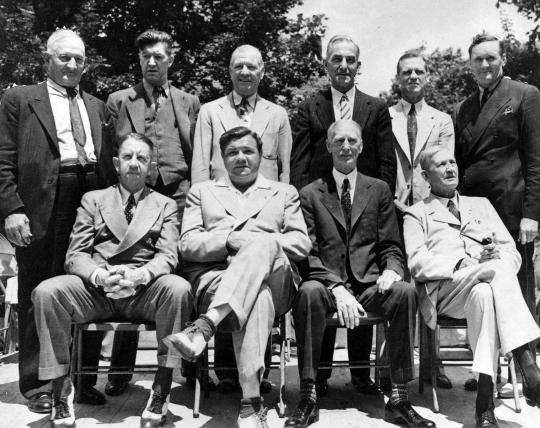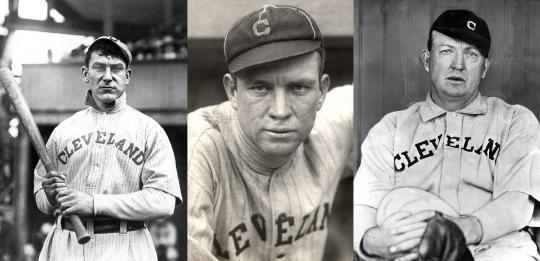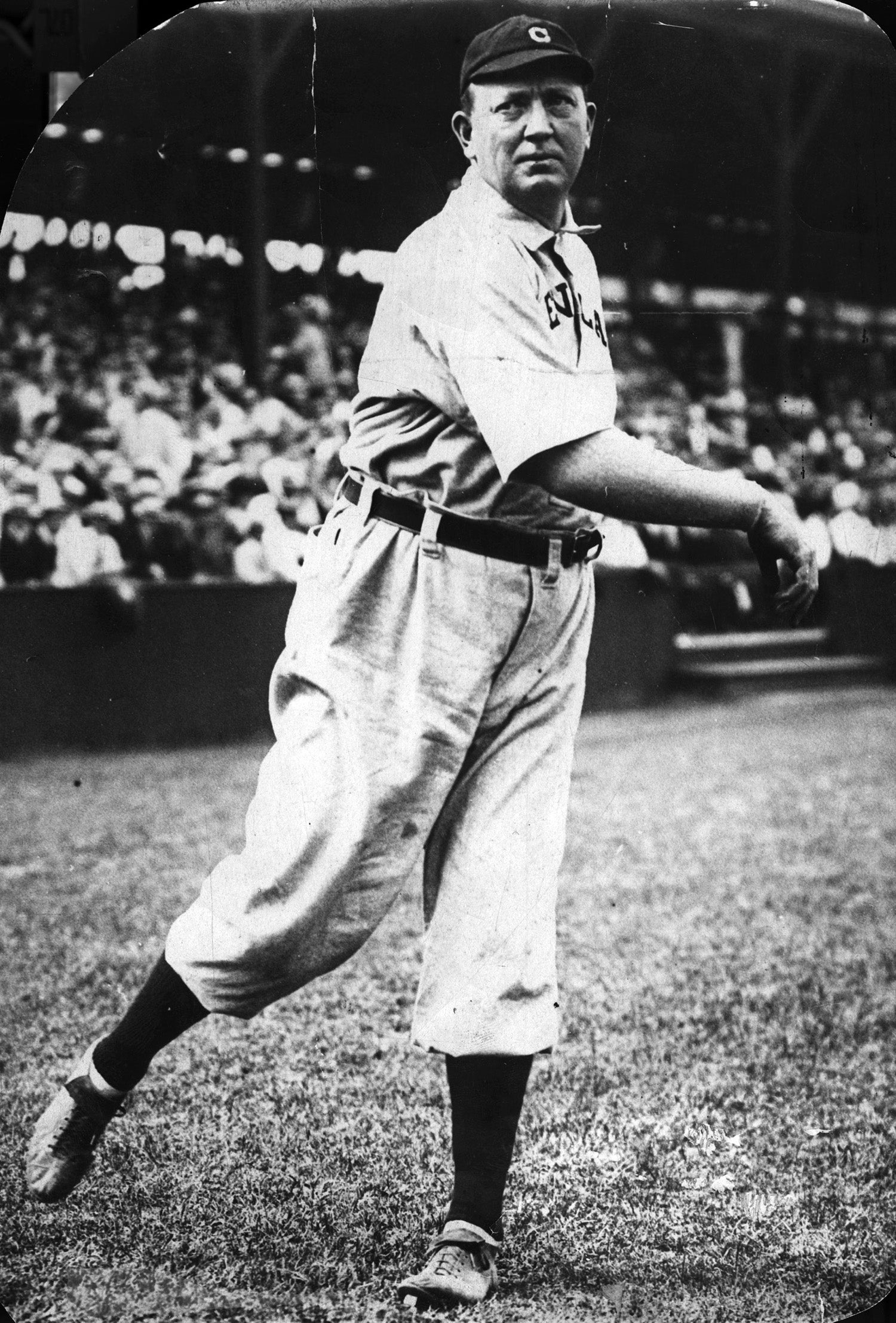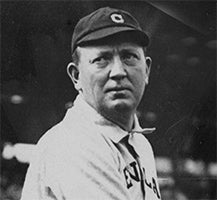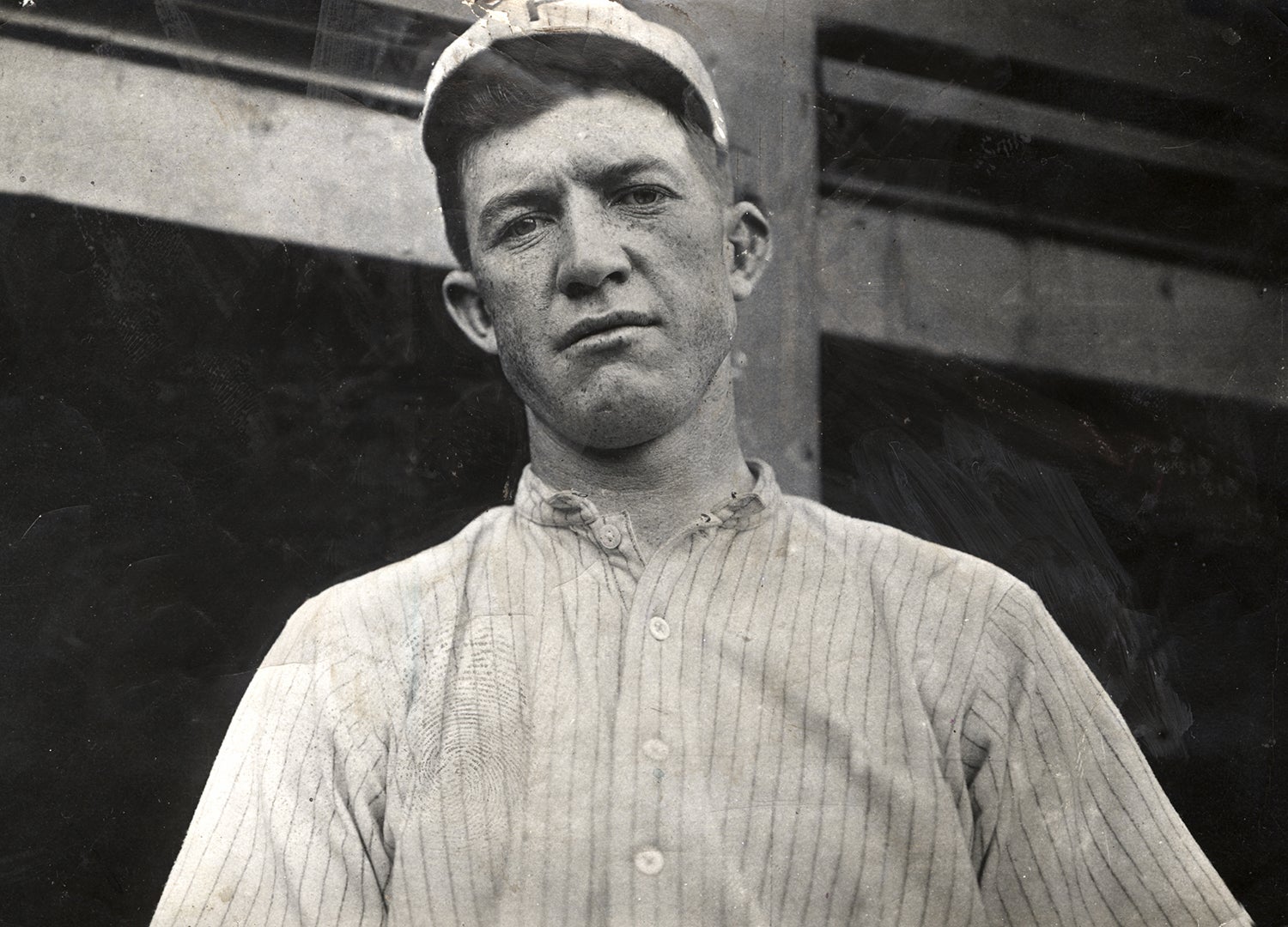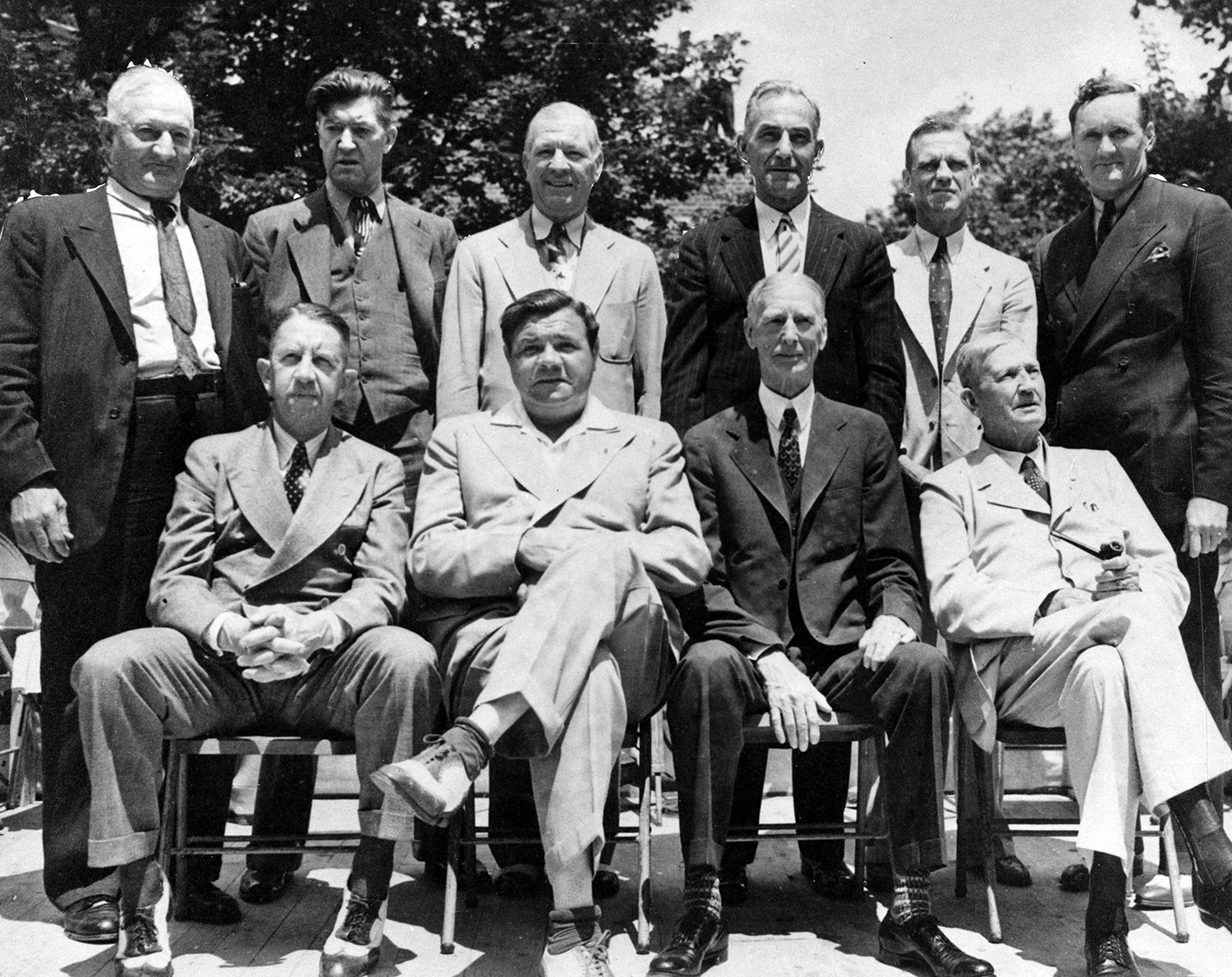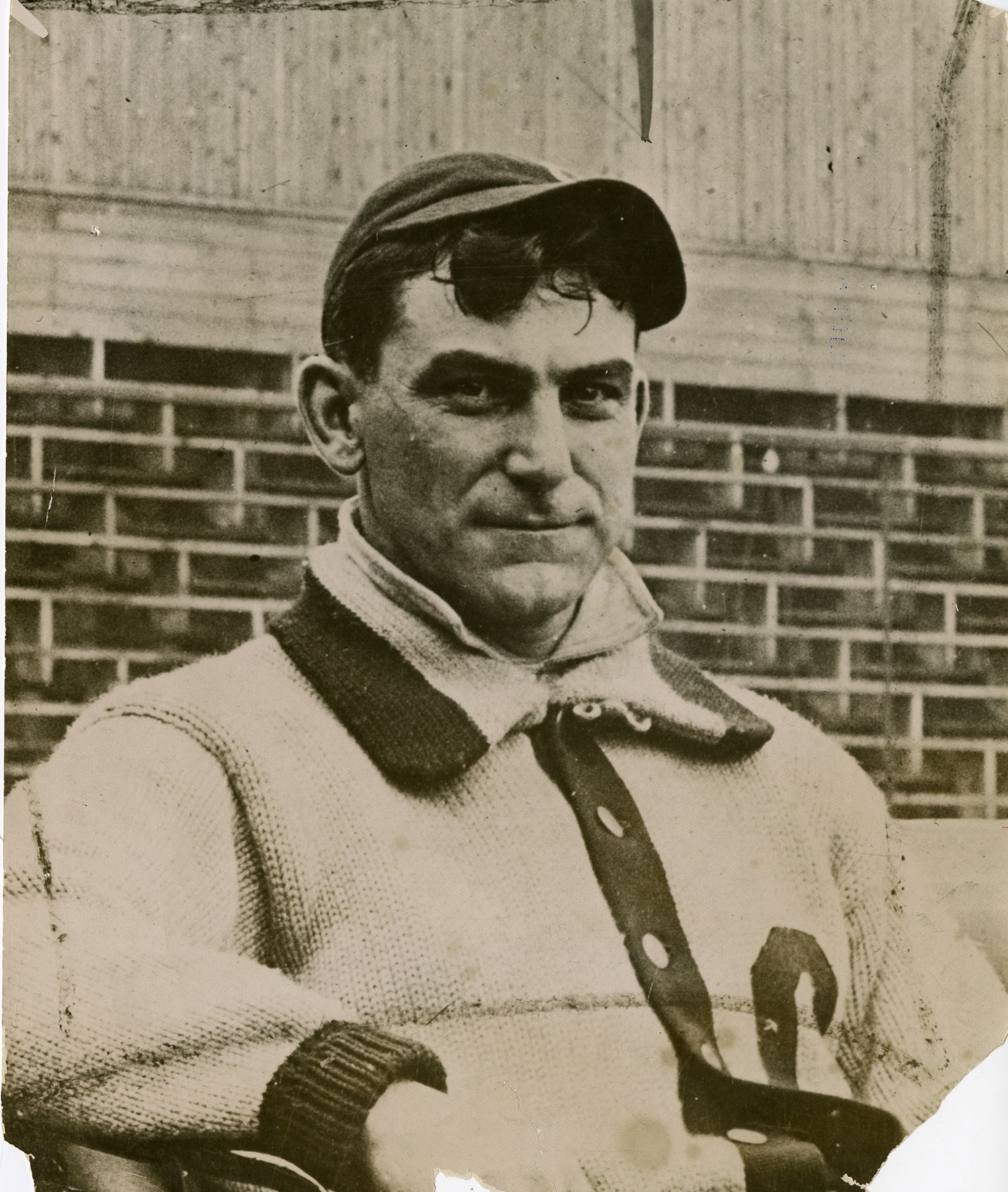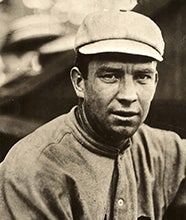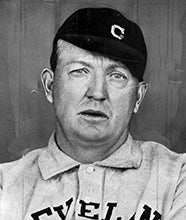- Home
- Our Stories
- Second BBWAA election brings Lajoie, Speaker, Young to Cooperstown
Second BBWAA election brings Lajoie, Speaker, Young to Cooperstown
Baseball’s most exclusive fraternity gained a legendary arm and two of the game’s greatest batsmen on Jan. 19, 1937.
The Hall of Fame’s overall membership grew to eight, as Nap Lajoie, Tris Speaker and Cy Young earned election through the second BBWAA vote, garnering the necessary 75 percent of votes in their second year on the ballot.
Lajoie led the trio with 168 of 201 possible votes, good for 83.6 percent. Speaker landed in second with 165 votes, or 82.1 percent, while Young narrowly exceeded the necessary 151 votes with 153, or 76.1 percent.
Lajoie, a second baseman and Rhode Island native, broke into the big leagues with the Phillies in 1896, but he spent the bulk of his career with Cleveland – a team that would be renamed in his honor as the Naps. Over his 21-year career, Lajoie batted .338 with 3,243 hits and 1,599 RBI.
Official Hall of Fame Merchandise
Hall of Fame Members receive 10% off and FREE standard shipping on all Hall of Fame online store purchases.
Hall of Fame Membership
There is no simpler, and more essential, way to demonstrate your support than to sign on as a Museum Member.
Speaker, who hailed from Hubbard, Texas, began his career with Boston in 1907, capturing World Series titles with the Red Sox in 1912 and 1915 and the Chalmers Award (given to each league’s top player) in 1912. In 1916, the outfielder was dealt to Cleveland, where he won another World Series championship in 1920 while serving as player-manager.
Speaker batted .345 with 3,514 hits and 1,531 RBI over his 22 years. The youngest of the three electees at 47 years old, Speaker lived in Cleveland at the time of his election, serving as chairman of the Cleveland Boxing Commission.
Young also spent a large portion of his career in Cleveland, getting his start with the Spiders in 1890. The dominance and durability he displayed throughout his 22 big league seasons remains unmatched to this day, and his career statistics are mind boggling to the modern baseball fan.
Young accumulated an all-time record 511 career wins – nearly 100 more than the second highest total of 417 by Walter Johnson, who was elected to the Hall of Fame as part of the first class in 1936. He also holds big league records in games started (815), complete games (749) and innings pitched (7356.0).
Barely missing out on election in the Class of 1937 were Grover Cleveland Alexander with 125 votes and Willie Keeler and Eddie Collins with 115 votes.
Though there were no complaints about who was elected, columnist John Kieran of The New York Times took issue with the fact that Collins had not made the cut.
“What puzzled this observer and registered voter was not that Lajoie, Speaker and Cy Young got in, but that Eddie Collins was left out,” Kieran wrote. “He could have made the team without crowding Lajoie, Speaker or Cy Young off the field.”
Collins would take his place in Cooperstown two years later, in 1939, along with Keeler and George Sisler.
Collins wasn’t the only name on Kieran’s shortlist of men who deserved election.
“What about the late John McGraw and the amiable and venerable Connie Mack?” Kieran wrote. “The walls at Cooperstown will not be well filled or properly decorated until such names are added to the current collection.”
As it turned out, Mack and McGraw, along with executives Morgan Bulkeley and Ban Johnson and pioneer George Wright, would join the Class of 1937 in December of that year, when they were elected by the Veterans Committee.
Lajoie, Speaker, Young and Mack, along with the living members of the Classes of 1936, 1938 and 1939, were all in attendance two years later on June 12, 1939, for the first Induction Ceremony and the official opening of the Hall of Fame.
Janey Murray was the digital content specialist at the National Baseball Hall of Fame and Museum

